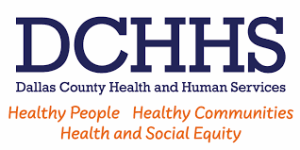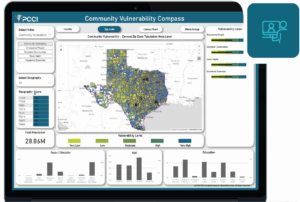
D CEO Healthcare features PCCI’s work with the Parkland Community Health Plan and Parkland Hospital on pre-term birth prevention. The results of this work show how PCCI and Parkland are working together to develop innovative ways to improve healthcare for the under-served in our community.
##
Avoiding Pre-Term Birth with Text Messages in Dallas
At the Parkland Center for Clinical Innovation, data analytics and technology are improving outcomes for underserved pregnant women in Dallas. One significant way to reduce maternal and infant mortality is to avoid pre-term birth, and in 2017, Texas had a 10.4 percent pre-term birth rate – earning a D in the annual ranking from March of Dimes.
The women were enrolled in the Parkland health plan, which reached out to them to get the women signed up for the texting system. Pre-term birth can be a difficult thing to predict, says Dr. Joseph Chang, Associate Chief Medical Officer for Outpatient and Ambulatory Services at Parkland. Traditionally, the only way to know if a women was going to have a pre-term birth was if she had a past pre-term birth. But he says that a couple of interventions, including progesterone shots, can make a huge difference.
“Adherence to medicine is the biggest factor,” Chang says. “If we really were able to identify the right people, use a platform for today’s young parents, maybe that would really work.”
Because Parkland is both the health plan and the healthcare provider, PCCI was able to access both sides of the payer relationship in a way that can be difficult to access in traditional healthcare systems. Their system brought the electronic health record together with behavioral health information to identify the women, and yielded impressive results.
Appointments were closely monitored, with PCCI measuring data along the way to adjust the text messaging and tailor it to the patients’ needs. After just one year, women in the program increased prenatal visit attendance by 24 percent, reduced pre-term birth by 27 percent. The program also reduced post-delivery cost by 54 percent in the first year. The 679 women who enrolled saved the system $1 million in the first year.
Fighting healthcare battles before the patient arrives at the doctor is important for PCCI CEO Steve Miff. “Health begins where we work, live, learn, play, and pray,” he says. “We are moving upstream, because if they are not addressed it will have a negative impact on health.”
Politico covered PCCI’s efforts to reduce frequent flyers by targeting patients who lacked many of the supports needed after they left the hospital. Their software connected social service agencies to the healthcare system to refer patients to get those services outside of the hospital, which would be cheaper and more efficient than seeing patients return again and again because they lacked food or housing. The impact was significant. The pre-term birth program is another way to head off medical costs before they happen.
Looking ahead, PCCI hopes to continue to fight social isolation to provide access to services, improving many of the behavioral and environmental factors that negatively impact health. “How do we use digital tech and bring women together, create clusters of similar individuals, customize behavioral therapy?” Miff says. “We can do that via a digitally provided environment, we can do it from home, and bridge the gap via telemedicine.”
Chang sees this technology being applied to any number of ailments, but sees a massive opportunity in addressing diabetes treatment. There are apps for measuring and taking glucose, but the texting might be more effective because it doesn’t require another application. “The biggest problem is taking their medicine – taking it and taking it correctly.”







